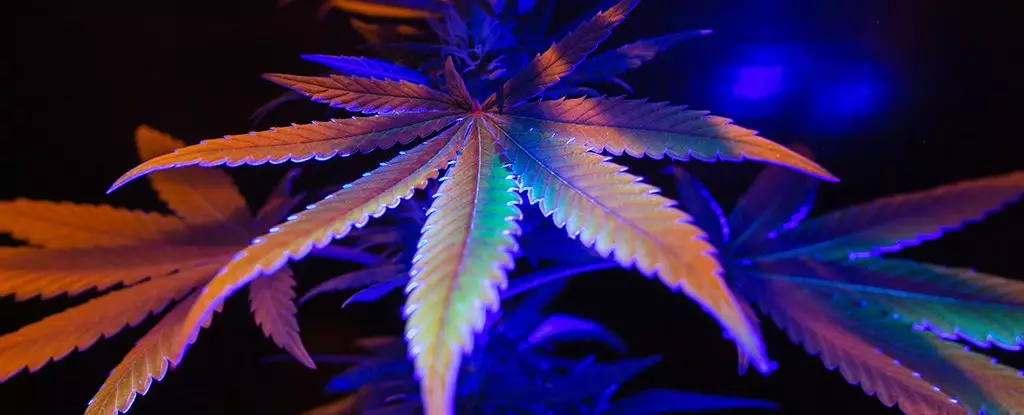A recent Canadian study has found a significant increase in the risk of teenagers developing a psychotic disorder associated with cannabis use. The study suggests that the potency of cannabis today is much higher than it was in the past, leading to a stronger association between cannabis use and psychotic disorders. The study focused on formal diagnoses of psychotic disorders, such as schizophrenia, in late adolescence and early adulthood.
The study conducted by McMaster University epidemiologist André McDonald and colleagues revealed that teenagers aged 12-19 who reported using cannabis had a staggering 11 times higher risk of being diagnosed with a psychotic disorder compared to non-users. This association between cannabis use and psychotic disorders in teens is particularly alarming, especially considering the vulnerability of the developing teenage brain.
Interestingly, the association between cannabis use and psychotic disorders did not extend into young adulthood, between the ages of 20 to 33, at least not in this specific Canadian study. This finding raises questions about the potential long-term effects of cannabis use on mental health and the differences in susceptibility between teenagers and young adults.
The study suggests that the neurodevelopmental theory plays a significant role in explaining why teens are more vulnerable to the effects of cannabis. The fact that the teenage brain is still developing makes it more susceptible to the negative impacts of cannabis use. Prior to this study, there was limited epidemiological evidence supporting the idea of teenagers being at higher risk for psychotic disorders due to cannabis use.
While the study highlights a strong association between cannabis use and the risk of developing psychotic disorders in teenagers, it lacks information on genetic factors or trauma history. This limitation makes it challenging to determine definitively whether teen cannabis use directly caused the recorded psychotic disorders. Observational studies like this can only suggest associations rather than causation.
The study was conducted before the legalization of recreational cannabis in Canada in 2018, so future analyses may provide insight into how policy changes affect adolescent health. The legalization of cannabis raises questions about how regulatory measures impact the prevalence of cannabis use among teenagers and, subsequently, the risk of developing psychotic disorders.
The study sheds light on the concerning link between cannabis use in teenagers and the increased risk of psychotic disorders. The findings emphasize the importance of understanding the potential consequences of cannabis use on mental health, especially during critical stages of brain development. Further research is needed to explore the complex interactions between cannabis use, genetic factors, and environmental influences on the development of psychotic disorders in adolescents.


Leave a Reply